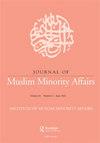Islamic with Turkish Connections: Atiya’s and Zeyneb’s Counter-narratives to the West
IF 0.4
0 RELIGION
引用次数: 0
Abstract
Abstract South Asian Atiya Fyzee and her Turkish contemporary Zeyneb Hanoum were epistolary travel writers. Despite their variant geographical identities, both had Turkish connections and share similarities in their work. Both made trips to Europe in the early twentieth century when international travel was not as common as it is today. The preferred mode of long-distance travel then was by sea, as the faster means of air transportation began to be widely used on a commercial basis only in the 1950s and 1960s. The travel accounts of these two writers demonstrate striking commonalities, especially with regard to Islamic devotional expressions and counter-narratives to the West. While Atiya in her writing responded to negative portrayals of Indians in colonial discourse, Zeyneb wrote back to the dominant Western representation of Turkish women as homogenously passive, hidden and silenced in the harem. Given these different backgrounds and positionalities, their counter-narratives to the West are significant and merit close attention.伊斯兰与土耳其的关系:阿提亚和泽内布对西方的反叙事
摘要南亚作家阿提娅·费兹和她的土耳其当代作家泽内布·哈诺姆是书信体旅行作家。尽管他们的地理身份各不相同,但他们都有土耳其的联系,在工作中也有相似之处。两人都是在20世纪初前往欧洲的,当时国际旅行并不像今天这样普遍。当时首选的长途旅行方式是海运,因为更快的航空运输方式直到20世纪50年代和60年代才开始在商业基础上广泛使用。这两位作家的旅行记录显示出惊人的共性,尤其是在伊斯兰信仰表达和对西方的反叙事方面。虽然Atiya在她的作品中回应了殖民话语中对印度人的负面描述,但Zeyneb回击了西方对土耳其女性在后宫中同样被动、隐藏和沉默的主流描述。鉴于这些不同的背景和立场,他们对西方的反叙事意义重大,值得密切关注。
本文章由计算机程序翻译,如有差异,请以英文原文为准。
求助全文
约1分钟内获得全文
求助全文
来源期刊

Journal of Muslim Minority Affairs
RELIGION-
CiteScore
1.40
自引率
0.00%
发文量
31
期刊介绍:
Journal of Muslim Minority Affairs is a peer reviewed research journal produced by the Institute of Muslim Minority Affairs (IMMA) as part of its publication programme. Published since 1979, the journalhas firmly established itself as a highly respected and widely acclaimed academic and scholarly publication providing accurate, reliable and objective information. Journal of Muslim Minority Affairs provides a forum for frank but responsible discussion of issues relating to the life of Muslims in non-Muslim societies. The journalhas become increasingly influential as the subject of Muslim minorities has acquired added significance. About 500 million Muslims, fully one third of the world Muslim population of 1.5 billion, live as minorities in 149 countries around the globe. Even as minorities they form significant communities within their countries of residence. What kind of life do they live? What are their social, political and economic problems? How do they perceive their strengths and weakness? What above all, is their future in Islam and in the communities of their residence? The journal explores these and similar questions from the Muslim and international point of view in a serious and responsible manner.
 求助内容:
求助内容: 应助结果提醒方式:
应助结果提醒方式:


